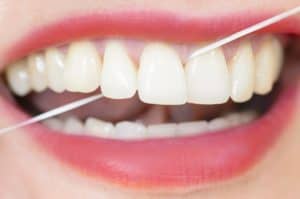 It can be tempting to put off preventative dental care with so many things vying for your time and attention. However, in the long run, being diligent about preventative care will save you valuable time, energy and money.
It can be tempting to put off preventative dental care with so many things vying for your time and attention. However, in the long run, being diligent about preventative care will save you valuable time, energy and money.
To help you understand exactly how you can lower your risk of oral health problems, the team at Northfield Dental Group answers your questions about preventative dental care here.
What is the most effective way to lower my risk of cavities and gum disease?
Brushing and flossing your teeth daily are the most effective ways to keep your mouth clean and free of decay or disease. Our team recommends brushing at least twice a day with a fluoride toothpaste and flossing once a day (preferably at night). Brush and floss slowly and deliberately, making sure not to skip any teeth or spaces in between your teeth.
Why is it important to see my dentist regularly?
Routine visits to your dentist involve two steps: a professional cleaning and a thorough exam.
During the cleaning, a skilled hygienist will use instruments to remove bacteria and plaque from your teeth that you cannot reach with a toothbrush or floss. If not removed, the plaque can lead to dental disease.
During the exam, the dentist will examine every nook and cranny of your mouth, looking for signs of cavities, gum disease, oral cancer and other problems that threaten your oral health. Some exams will involve taking a set of X-rays to look inside and between your teeth and below the gumline.
Should I still see my dentist if I don’t have any pain or symptoms?
Yes. Some dental diseases do not cause noticeable pain or symptoms in their early stages, so you wouldn’t know if a problem had developed. Left undiagnosed and untreated, these problems can become worse over time, causing pain and disrupting normal chewing and biting function.
Does my diet affect my oral health?
Yes, the foods and beverages you consume can affect the health of your teeth and gums. Naturally occurring bacteria in your mouth feeds off the sugars in sweets, sweetened beverages and starchy snack foods, releasing acids that destroy tooth enamel. Acidic foods and beverages, such as orange juice, cola and vinegar, can also cause the gradual erosion of tooth enamel.
What are some signs that suggest I might need to see my dentist in between routine exams and cleanings?
If you think something may be wrong with your teeth or gums, do not delay making a dental appointment. Identifying and treating a problem early is usually quicker and less invasive than addressing it after it has advanced.
Signs that something may be wrong include tooth pain or swelling, bleeding gums, bad breath that doesn’t go away and changes in the way your upper and lower teeth bite together.
For more information about preventing dental disease, please contact the team at Northfield Dental Group today.




 Our Practice
Our Practice Our Doctors
Our Doctors Blog
Blog Special Offers
Special Offers Financing
Financing Testimonials
Testimonials